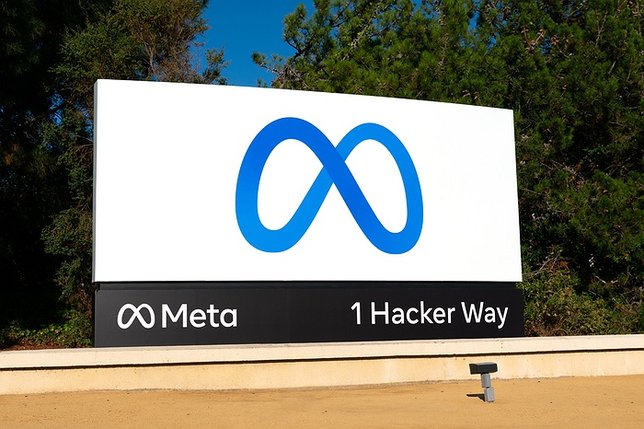New York Attorney General Letitia James and a bipartisan coalition of 32 attorneys general today filed a federal lawsuit against Meta for harming young people’s mental health and contributing to the youth mental health crisis. The lawsuit alleges that the company knowingly designed and deployed harmful features on Instagram, Facebook, and its other social media platforms that purposefully addict children and teens. Filed in the U.S. District Court for the Northern District of California, the lawsuit also charges that Meta routinely collects data on children under 13 without informing parents or obtaining parental consent, in violation of federal law. In coordination with Attorney General James and the coalition of 32 attorneys general, nine additional attorneys general are filing lawsuits in their respective states, bringing the total number of attorneys general taking action against Meta to 42. Today’s lawsuit follows the recent announcement of state-level legislation proposed by Attorney General James and colleagues to protect children online.
“Kids and teenagers are suffering from record levels of poor mental health and social media companies like Meta are to blame,” said Attorney General James. “Meta has profited from children’s pain by intentionally designing its platforms with manipulative features that make children addicted to their platforms while lowering their self-esteem. Social media companies, including Meta, have contributed to a national youth mental health crisis and they must be held accountable. I am proud to join my fellow attorneys general to stop Meta’s harmful tactics and keep children safe online.”
The lawsuit alleges that Meta, which owns Facebook and Instagram, exploited young users for profit by designing its business models to maximize young users’ time and attention and deploying harmful and manipulative features that harm young users. Meta designed features on its platforms that it knew would harp on young users’ vulnerabilities. These features include:
- Algorithms that are designed to recommend content to keep users on the platform longer and encourage compulsive use;
- “Likes” and social comparison features known by Meta to harm young users;
- Incessant alerts meant to induce young users to return to Meta’s platforms constantly, even while at school and throughout the night;
- Visual filter features known to promote young users’ body dysmorphia; and
- Content-presentation formats, such as “infinite scroll,” designed to discourage young users’ attempts to self-regulate and disengage with Meta’s products.
While refining these manipulative features and marketing them to young users, Meta deceptively claimed that its features were not manipulative and that its platforms were safe. In addition, Meta routinely published profoundly misleading public reports that purported to show impressively low rates of negative and harmful experiences by users of its platforms.
Several studies, including Meta’s very own research, show that there are links between young people’s use of Meta’s platforms and psychological and physical harms, including depression, anxiety, insomnia, interference with education and daily life, and many other negative outcomes. While Meta has publicly denied and downplayed these harmful effects, it cannot credibly plead ignorance. Meta’s own internal research documents show its awareness that its products harm young users. Indeed, internal studies that Meta commissioned — and kept private until they were leaked by a whistleblower and publicly reported — reveal that Meta has known for years about these serious harms associated with young users’ time spent on its platforms.
The lawsuit also alleges that Meta violated its obligations under the Children’s Online Privacy Protection Act (COPPA) by unlawfully collecting the personal data of its youngest users without parents’ consent. Meta has marketed its platforms to children under the age of 13 and acquired actual knowledge that those children use its social media products, but Meta has refused to obtain parental consent prior to collecting and monetizing their children’s personal data. In addition, Meta publicly denies what is privately discussed as an open secret within the company, that very young children are a known part of Meta’s user base and business model, and that Meta refuses to limit its collection and use of those children’s sensitive data as required by law.
Through this lawsuit, Attorney General James and the bipartisan coalition seek to stop Meta from continuing to deploy these harmful tactics, as well as penalties and restitution.
Joining Attorney General James in filing the federal lawsuit against Meta are the attorneys general of Arizona, California, Colorado, Connecticut, Delaware, Georgia, Hawaii, Idaho, Illinois, Indiana, Kansas, Kentucky, Louisiana, Maine, Maryland, Michigan, Minnesota, Missouri, Nebraska, New Jersey, North Carolina, North Dakota, Ohio, Oregon, Pennsylvania, Rhode Island, South Carolina, South Dakota, Virginia, Washington, West Virginia, and Wisconsin.
Filing lawsuits in their own state courts are the attorneys general of Florida, Massachusetts, Mississippi, New Hampshire, Oklahoma, Tennessee, Utah, Vermont, and the District of Columbia.
Today’s lawsuit is Attorney General James’ latest effort to hold social media companies accountable and protect children online. Earlier this month, Attorney General James, Governor Hochul, State Senator Gounardes, and Assemblymember Rozic announced legislation to help keep children safe online and prevent dangerous health consequences of addictive social media platforms.
This case was handled Assistant Attorney General Nathaniel Kosslyn of the Bureau of Internet and Technology, which is led by Bureau Chief Kim Berger and Deputy Bureau Chief Clark Russell. The Bureau of Internet and Technology is a part of the Division of Economic Justice, which is led by Chief Deputy Attorney General Chris D’Angelo and overseen by First Deputy Attorney General Jennifer Levy.










